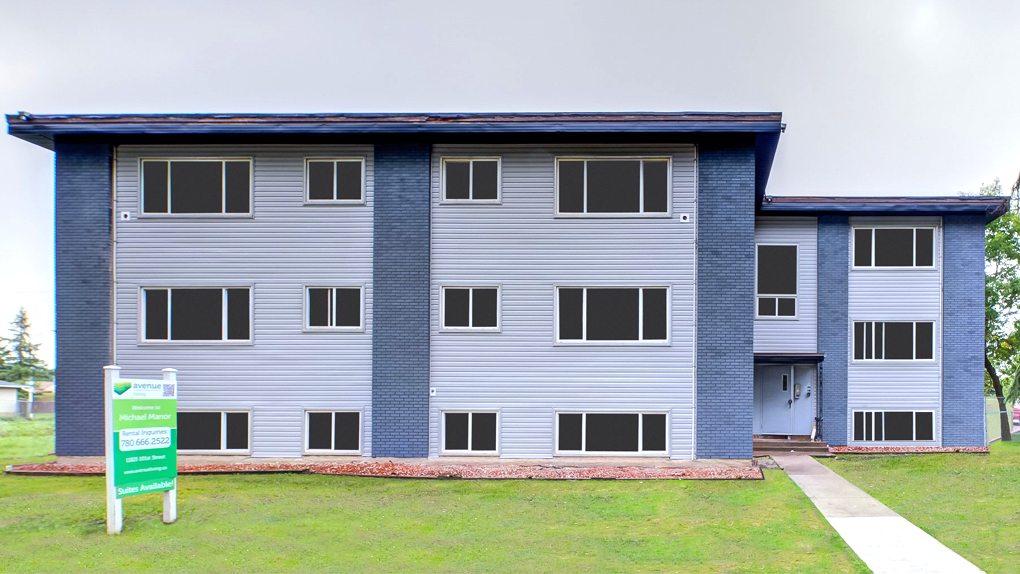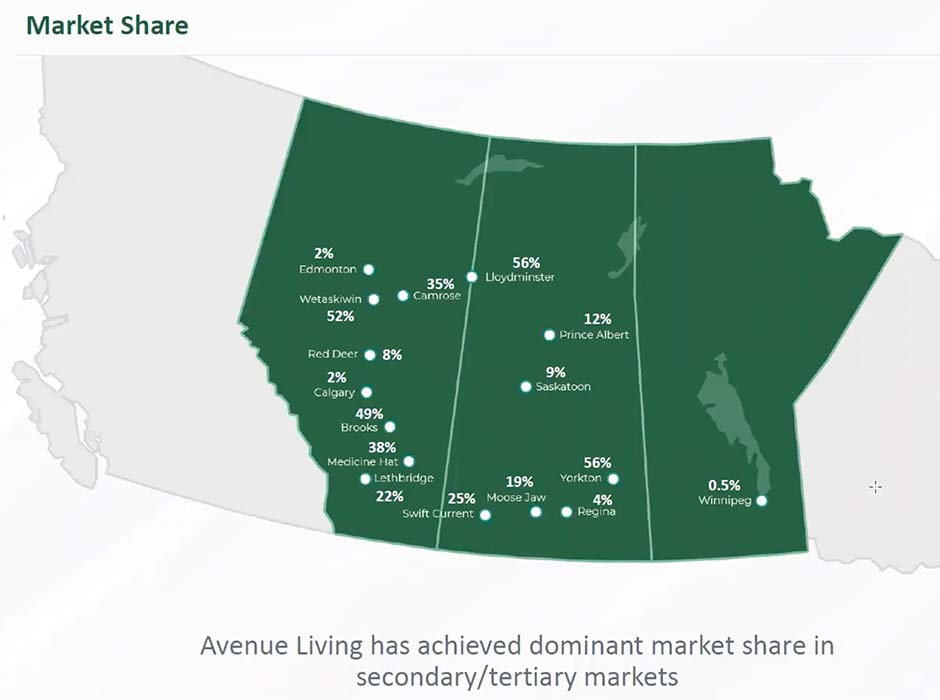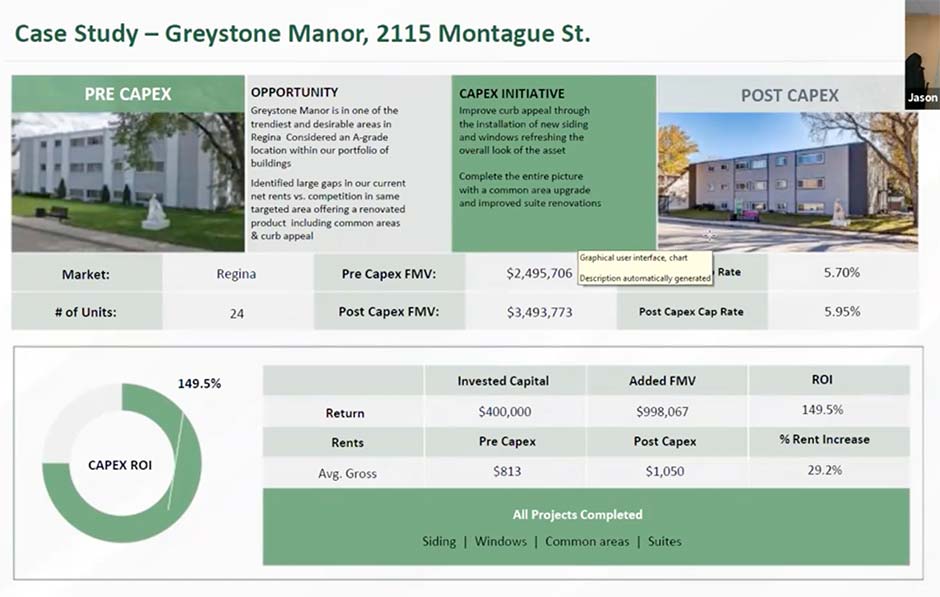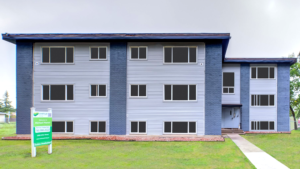
Big Property Company Tells Investors Its Business Strategy Focuses on ‘Essential Workers’ in Provinces Where There’s ‘No Rent Controls’
Company executive tells investors on video call that there are ‘no rent controls in Alberta and Saskatchewan’
One of Western Canada’s biggest rental companies says it is building up a tenant base of “essential workers” in Alberta and Saskatchewan specifically because the two provinces do not have rent control.
Avenue Living is a Real Estate Investment Trust company which owns and operates rental property across Alberta, Saskatchewan and Manitoba. An REIT allows wealthy investors to buy into the trust and receive income from rents collected in the form of dividends and returns. In 2019, former Saskatchewan Party Premier Brad Wall joined Avenue Living as an advisor.
Jason Jogia, Chief Investment Officer for Avenue Living Real Estate Core Trust explained the company’s strategy in an investor presentation video for Raintree Financial.
“What we’ve done is we’ve focused our business and geared towards the essential workers, towards this working class folk,” Jogia said, noting “they are what we consider the ‘rent by necessity’ group of Canadians.”
When asked by one investor why the company is concentrated on the Prairies, Jogia explained one of the main reasons: “There are no rent controls in Alberta and Saskatchewan to the extent that they are in Ontario or the British Columbia markets.”
Rent increase policy in Alberta states: “There is no limit on the amount by which the landlord may raise the rent.”
Saskatchewan also states landlords can impose a “significant rent increase” that may require tenants to seek social assistance programs.
Avenue Living also makes The Case for Workforce Housing available as a document on their website:
“Not to be confused with affordable housing, Workforce Housing caters to a city’s ‘essential workers’ who are overqualified for affordable housing yet may not be able to afford average market-rate homes, whether for rent or purchase.”
“They were the renters by necessity, not the renter by choice,” Jogia explains in the video. “They ultimately were a group of residents that were making $15 to $50 an hour, but could afford to pay rent probably higher than what mom and pop were charging them.”
Jogia highlights one case study in Regina, Saskatchewan where Avenue Living renovated a building and then increased the rent by 29.2%: “The rents went from $800 – $1050 so we had a pretty sizeable rent increase during that time.”
In a statement provided to PressProgress, Jogia argued that rent control comes with its own challenges:
“Unfortunately, rent controlled environments have proven to create their own set of challenges for residents – lack of investment, scarcity of affordable housing, even ‘renovictions’. Our experience has taught us that our residents value a stable landlord who prioritizes investing back into their daily lives – as we do.
“To date, in 2021 we have spent over $100MM in various capital improvements, technology upgrades, and enhanced safety measures in our buildings. Our commitment is to provide our residents with a home they love while adhering to their budgetary needs.”
In the video, Jogia explains that Avenue Living houses over 25,000 essential workers primarily through purchasing older “B and C asset class” rental units. Avenue Living has acquired buildings in the larger prairie cities, but it has dominated the market in smaller municipalities.
In Alberta, Avenue Living says it owns 59% of B and C Class rental units in Brooks, 52% in Wetaskiwin, 35% in Camrose, 38% in Medicine Hat, 22% in Lethbridge, 25% in Swift Current, 8% in Red Deere and 2% in Calgary and Edmonton. In Saskatchewan, Avenue Living says it owns 56% of B and C rental units in Lloydminister and Yorkton, 12% in Prince Albert, 19% in Moose Jaw, 9% in Saskatoon and 4% in Regina.

Avenue Living slide
“To those who have been to Calgary, our assets are near the airport, and near the regional shopping mall and hospital, because that is the tenant profile we are looking to live with us. In Edmonton, we’ve got assets near transit stations so people can get to work easily.”
Avenue Living also owns 48,000 acres of Saskatchewan farmland which it rents out to farmers.
Brad Wall, Saskatchewan’s former premier, joined Avenue Living as a Trustee and Special Business Advisor in 2019 and later registered as a federal lobbyist for the company in 2020.
Avenue Living lobbied the provincial Saskatchewan government 11 times during the first year of the pandemic “regarding “Landlord/Tenant laws in the province” and “programs and policies to support individuals who are on income assistance” using the lobby firm Prairie Sky Strategy.
When PressProgress requested materials and communications related to these lobby meetings through a Freedom of Information request in January 2021, the Office of Residential Tenancies said “the record(s) you wish to access do not exist.”
The Saskatchewan government implemented a residential eviction ban in April 2020, as did many other provinces when the first pandemic lockdown occurred. However, Saskatchewan was the first province to lift the residential eviction ban on August 4. The province also never implemented a residential rent freeze at any point during the pandemic.
Avenue Living says it froze rent on new lease renewals throughout April, May and June of 2020. The company also says it set up weekly payment plans and helped tenants access social assistance and CERB. Jogia explained in the video that all this was done “to ensure that it was business as usual” throughout the pandemic.
Currently, Avenue Living advertises discounts on its website with phrases like, “less rent, more living” with special offers to “save hundreds” on “specially priced suites.”

Avenue Living slide
Dr. David Hulchanski is a housing and community development professor at the University of Toronto. He says Avenue Living’s expansion on the prairies is part of the broader trend of housing financialization that has grown across Canada and around the world, turning property into a “hyper-commodity” over the last 25 years.
As a Real Estate Investment Trust (REIT), Avenue Living uses pools of wealthy investor money to buy properties from local “mom and pop” landlords and raise rents to generate returns for those investors, Hulchanski explained to PressProgress.
“We’re talking about big money. A firm like Avenue Living can’t do what they’re doing without having a lot of money.”
“You go back 20 or 30 years, or just before Avenue Living came to those little towns, a bunch of individual people owned flatland, right? Now you’re going to have these pools of investment funds owning it. They care about the return on their investment, not anything else.”
“There’s almost nothing good in this for renters,” Hulchanski adds.
“The value of the building is in part based on location, but also based on the amount of rent. That’s why you buy an older building, you fix it up some. Being fixed up, it’s going to be worth a bit more. But the real thing is the amount of rents, so you’re in the business of having as high rents as possible.”
“And then I argue, this isn’t the market working, right? This is gouging, this is taking advantage of the fact that we’re not building many new rental buildings and lower income people need to rent.”
Avenue Living’s business model argues increasing prairie populations as well as more Canadians being “pushed out of homeownership affordability” will create a sustainable tenant base for “workforce housing” and “steadily increasing rents across our markets.”
By recruiting former Saskatchewan Premier Brad Wall, Avenue Living assures investors that the company will be able to effectively influence policymakers, Hulchanski said.
“Making really big money in real estate is possible because of government regulations — or lack of regulations — right? Inaction.”
“That comforts big investors.”
Our journalism is powered by readers like you.
We’re an award-winning non-profit news organization that covers topics like social and economic inequality, big business and labour, and right-wing extremism.
Help us build so we can bring to light stories that don’t get the attention they deserve from Canada’s big corporate media outlets.
Donate



